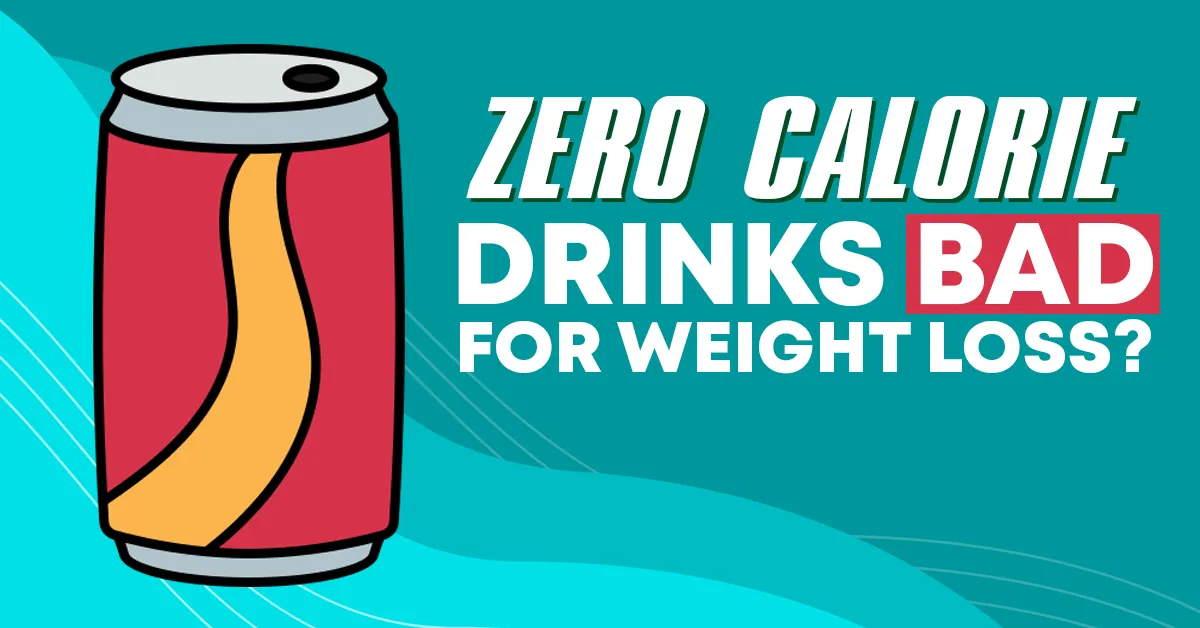Most beverages are packed with “empty” or non-nutritive calories and simply eliminating these calories from your diet would assumably lead to weight loss.
Recent studies have speculated that this may not be the case.
Consumption of zero-calorie drinks tends to have effects on the rest of our diet as well. This raises a possible scenario where drinking zero-calorie beverages could actually indirectly lead to weight gain.
Artificial Sweeteners
Many no-calorie beverages get their flavor from aspartame or other artificial sweeteners. This eliminates calories and sugar from the nutrition facts label – but it is not all good news.
Not only are concerns about the long-term impact of artificial sweeteners still up in the air, but studies on rodents have expressed concerns about how these sweeteners affect your brain. The artificial sweetener aspartame has been connected to impairing the brain’s ability to tell you to stop eating.
As a result, this could cause you to actually eat more and result in weight gain. This is particularly the case for sugary foods, because our minds may be able to better justify eating them considering we remember the beverage we are drinking has “zero sugar and zero calories.” Artificial sweeteners may create a craving fo real sweets – leading to more harm than good.
Carbonated Waters
Flavored carbonated waters have no artificial sweeteners in them, so it may be easy to assume they are excluded from the issues that plague artificial sweeteners.
Research has connected carbonated water to increased hunger, but again, the best available research so far was done on rodents.
Rodents who consumed water or flat soda (carbonation was lost) consumed less food than the rodents who drank carbonated beverages – either regular or diet kinds.
A much smaller study on 20 humans compared the same beverage options used in the rodent study, but only over a one-month period.
It was discovered that ghrelin levels were elevated in individuals who drank any type of carbonated beverage (including carbonated water). Ghrelin is the hormone associated with hunger, so having it elevated would create a desire to eat more.
How often are you drinking these beverages?
Frequency in your consumption of these beverages plays a crucial role in determining how concerned you should be.
Many of these studies are highlighting daily, or near-daily consumption of these beverages. With any of these drinks, even those that promise no calories or sugar, it is best to avoid daily consumption.
Make water your default beverage and mix in others sparingly. There is nothing wrong with having an occasional soda or carbonated beverage, but daily consumption is when you can develop larger issues.


